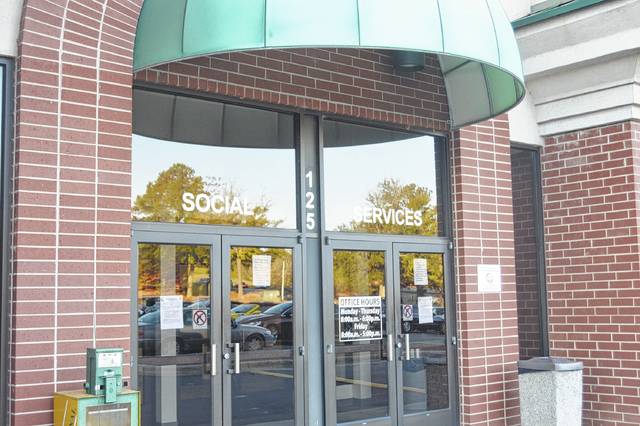ROCKINGHAM — A law that went into effect on July 31 requiring hospitals to report all instances of women giving birth while either they or their baby have drugs — legal or illegal — in their system has resulted in 10 times more reports than before, which could put a strain on child welfare service providers, according to Director of Social Services Robby Hall.
The Comprehensive Addiction and Recovery Act of 2016 amended an existing law to require health care providers to report to their respective Department of Social Services infants affected by substance abuse, withdrawal symptoms resulting from prenatal substance exposure or fetal alcohol syndrome.
Hall said the new law has removed the discretion of the hospitals from the reporting process who previously were able to determine which cases were “significant” — typically only reporting cases in which the infant was in danger — which has resulted in the higher number of reports. To be in accordance with CARA, DSS may have to add more staff and resources to keep up with the increased case load, according to Hall.
“We’re hearing about children we never would have heard about before,” he said.
Care Coordination for Children (CC4C) has received 36 referrals from Richmond County since July 31, the highest number of the seven counties it serves which includes Lee, Harnett, Montgomery, Moore, Hoke and Scotland, according to Program Manager Kimberly DeBerry. Of those, three were deferred because the families could not be contacted, five have yet to be reached, and the rest are receiving service, she said. (DSS lists the number at 39, which DeBerry said could mean the nature of the cases changed leading to a decision not to refer.)
Deberry added that the majority of these cases are “heavy” or “medium” status, meaning they require at least weekly or monthly communication between the family and child service providers, respectively.
The law also requires the development of a plan of safe care through CC4C to meet the needs of each family. Tammie McLean, network director for Community Care of the Sandhills, said the safe care plans involve following the baby to make sure it is in good physical condition, that the mother and the baby are bonding well and that the baby is in a safe environment.
North Carolina defines a “substance affected infant” as one with “a positive urine, meconium or cord segment drug screen or one whose mother has had a medical evaluation, including history and physical or behavioral health assessment indicative of an active substance use disorder, during the pregnancy or at the time of birth.”
DSS will collect monthly reports on the number of substance-affected infants, the number of infants and families for whom the agency developed a plan of safe care, the number of infants referred to the CC4C, the number of infants who were accepted for Child Protective Services assessment and the number of infants not accepted for CPS assessment.
Hall said he wants to add Richmond County’s usage of the overdose antidote narcan to the reports. These reports will be used to form an action plan that will be voted on at a public hearing in May.
Reach reporter Gavin Stone at 910-817-2674 or [email protected].

